Introduction
The international BinN research seminar aims to deepen the discussion about behavior in networks theory. In the last few years, as part of our summer school program we have been organizing research seminars with the participation as invited lecturers of BinN research collaborators such as Prof. Ryuichi Kitamura from Kyoto University, Prof. Moshe Ben-Akiva from MIT, Prof. Harry Timmermans from Eindhoven University of Technology, and Prof. Kostas Goulias from UC Santa Barbara. In the future, in addition to behavior in networks analysis, we would like to expand our research scope to cover other topics such as data analysis and operations research. We are looking forward to engage in research and dialogue with interested young researchers.
Prof. Eiji Hato
The University of Tokyo
Next Seminar
coming soon !
Recent Seminar Reports
#13: "Recursive Behavior Modeling and Optimization"(Jun. 30, 2021)
|
In this seminar, we invited Dr. Tien Mai Anh, who is a leading researcher of nested recursive logit, to discuss the creation of a new behavioral modeling field and collaborative research. In addition, two young speakers made presentations related to recursive modeling. Ms. Kobayashi presented a real option problem assuming recusive land ownership. Ms. Koseki introduced recursive migration choices after disasters. [Detail Report] |
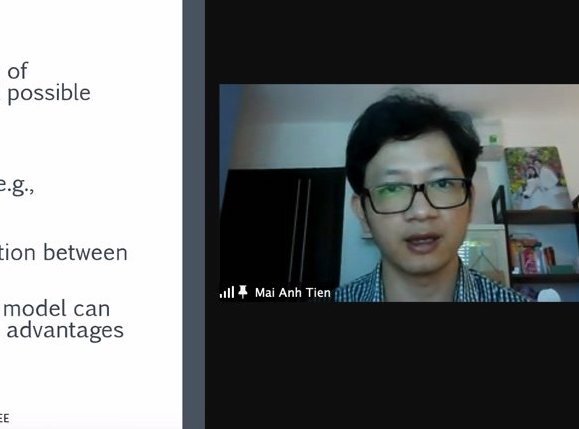
|
|---|
#11: "Living With Water"(Aug. 29, 2019)
|
In this seminar, we invited architect David Waggonner and landscape designer Keiji Asakura. Waggonner and Asakura introduced landscape design and urban planning whose concept is "living with water." This concept is based on Dutch city planning and it aims at high disaster resilience considering the character of each city. [Detail Report] |
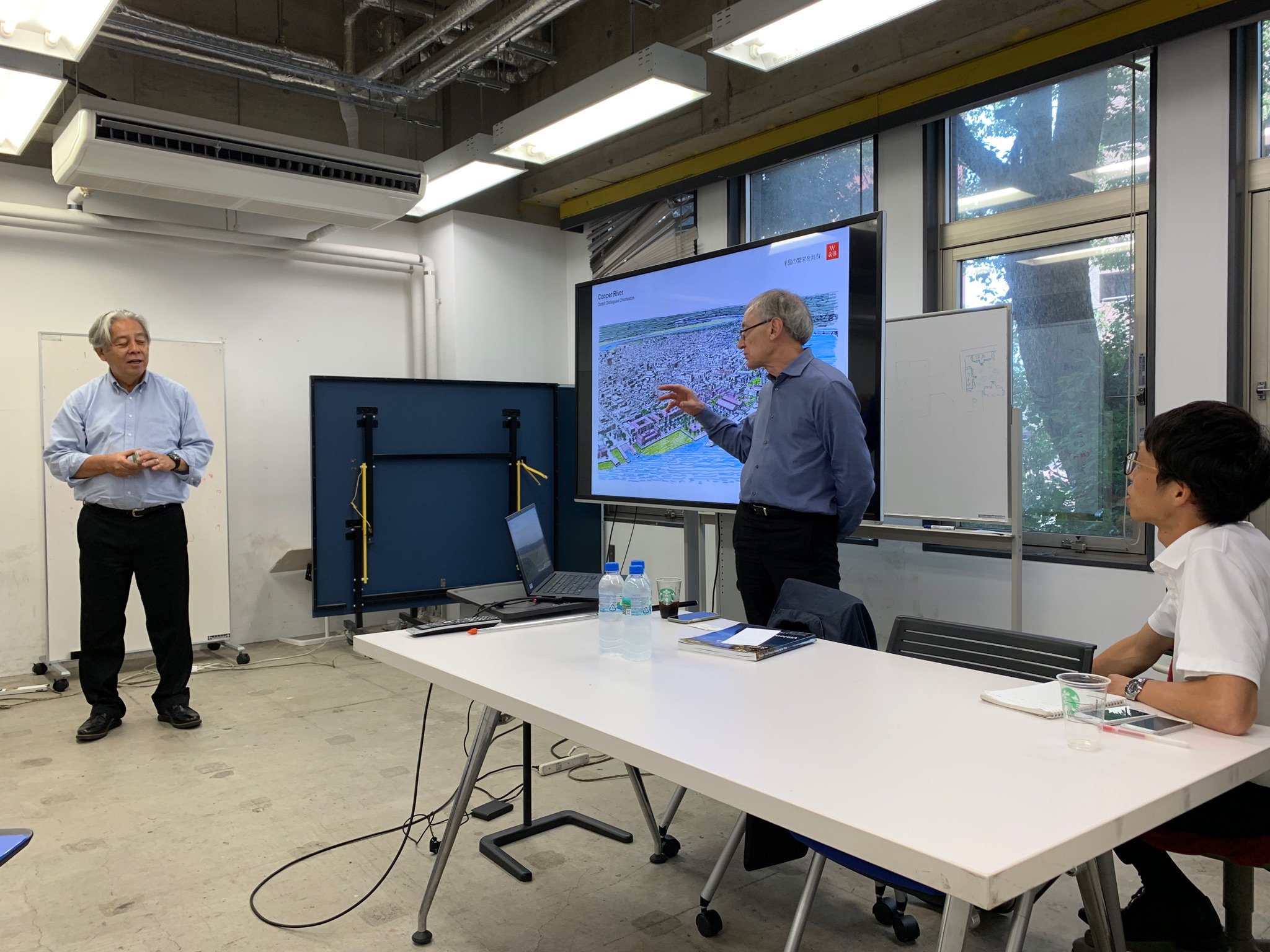
|
|---|
#10: "Unsteady Behavior Modelling in Damaged Networks"(Feb. 27 - Mar. 2, 2018)
|
In this seminar, we invited Prof. Shlomo Bekhor, Tomer Toledo, and some students from Israel Technion. Our research program aims to develop multi-scale behavioral simulation and optimization of disaster management. In International Research Workshop, we would like to discuss our plan and agenda for studies of unsteady behavior modelling in damaged networks. [Detail Report] |
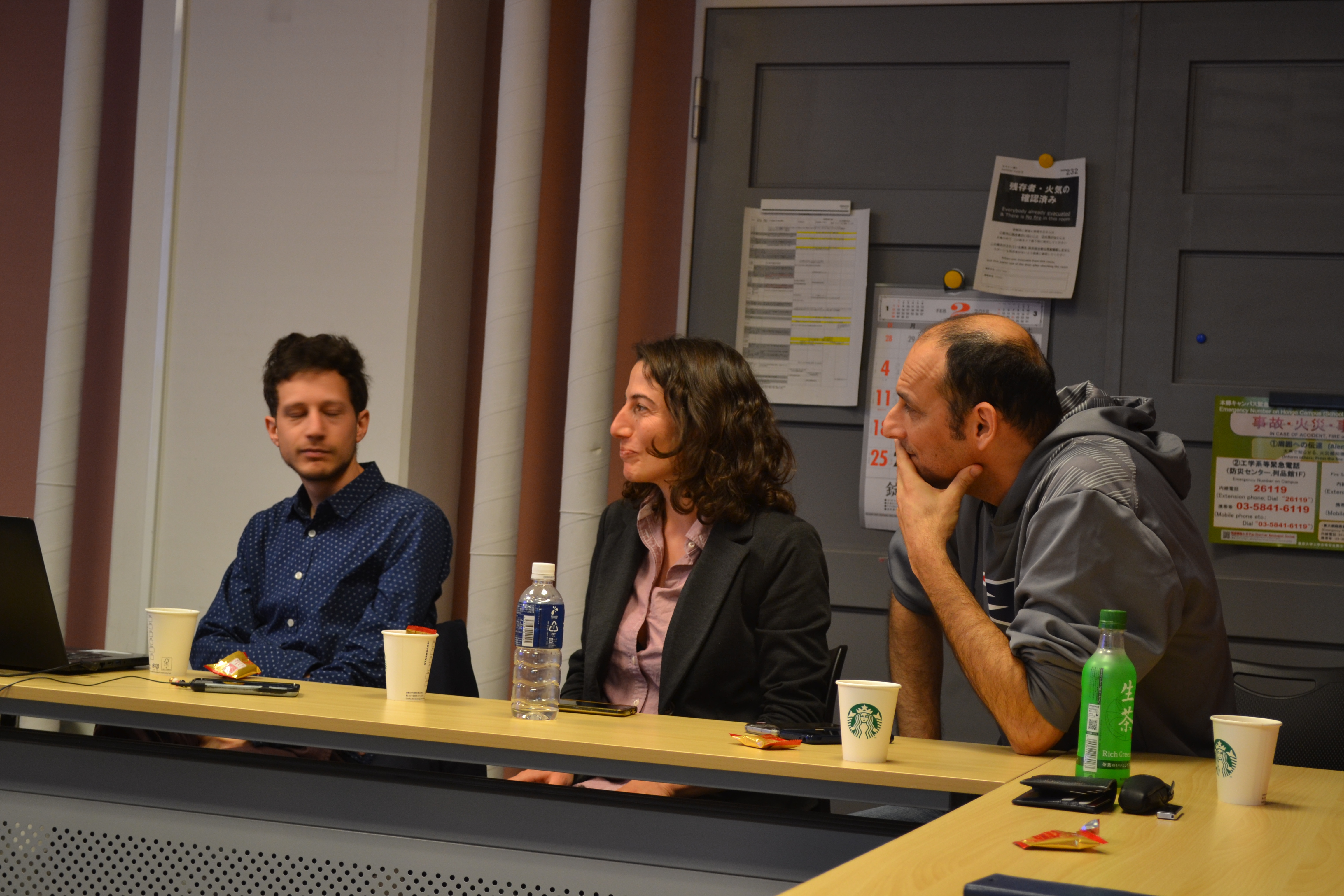
|
|---|
#09: "Autonomous Vehicles Modelling and its Network Evaluations"(Mar. 1, 2018)
|
In this seminar, we invited Prof. Shlomo Bekhor, who is a specialist in travel behavior modeling. We had the discussion about "Autonomous Vehicles". It consists of the presentations by four researchers related to network assignment, optimization, and simulation. [Detail Report] |
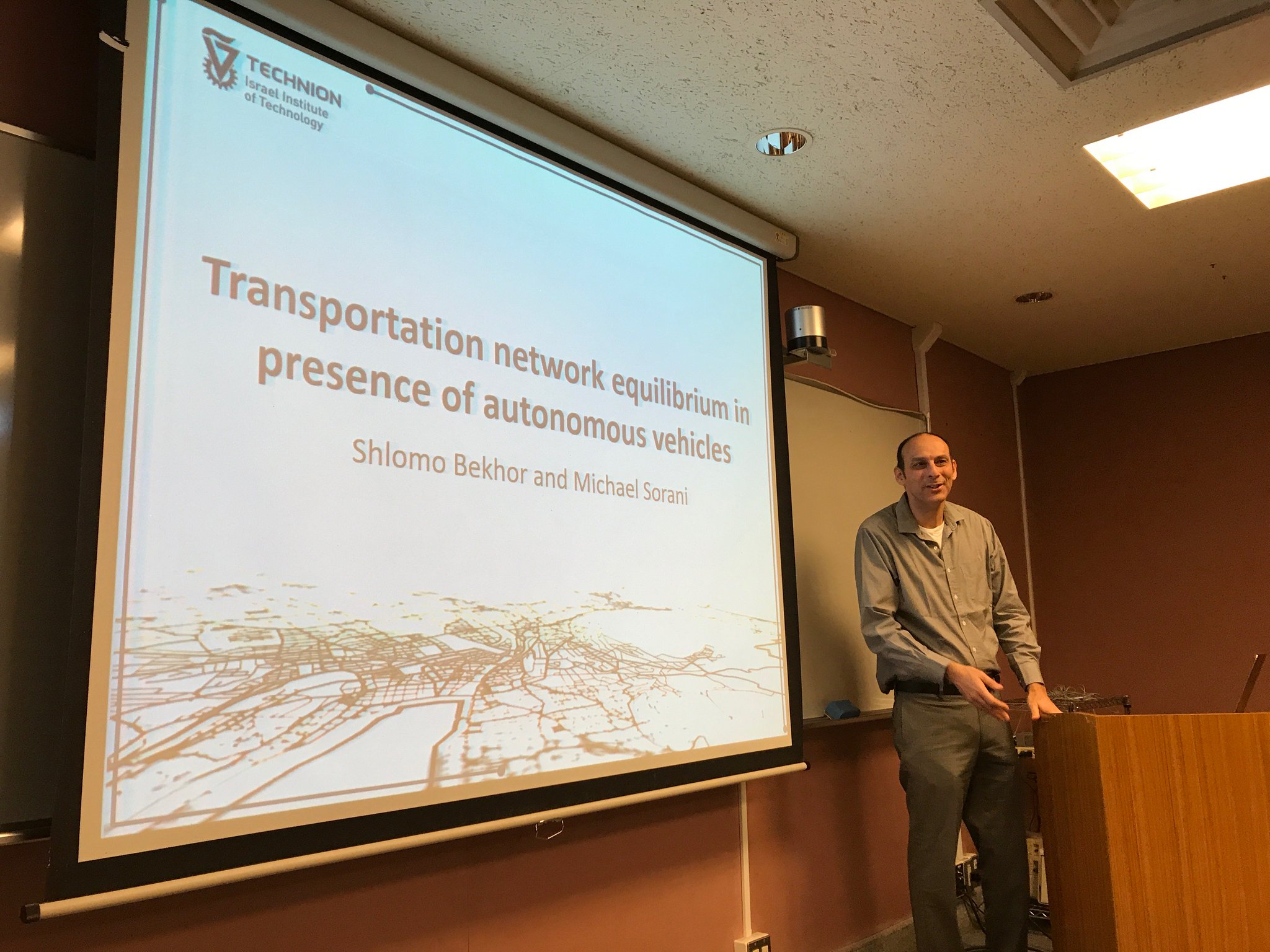
|
|---|
#08: "Behavior Models and Optimization"(Oct. 13-14, 2017)
|
In this seminar, we invited Prof. Michel Bierlaire, who is a specialist in travel behavior modeling. In addition, we had "bahavior in Networks Research Workshop", where seven speakers had presentations related to behavior modeling. It consists of three sessions, route choice, optimization, and special research talk by Prof. Michel Bielraire. [Detail Report] |
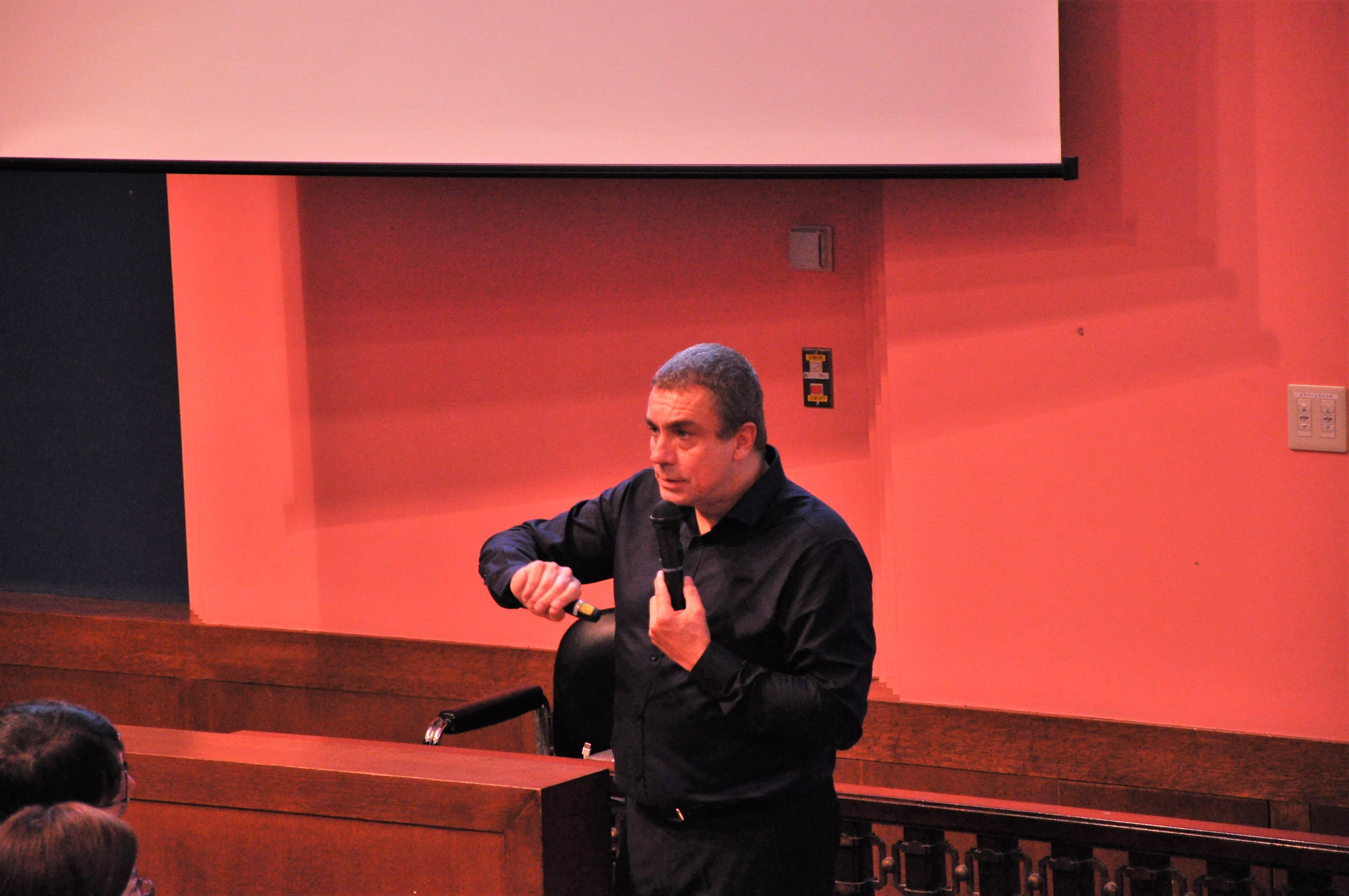
|
|---|
#07: "Dynamics in Behavior Modeling with Advanced Observation"(Sep. 24-25, 2016)
|
In this seminar, we invited Prof. Moshe Ben-Akiva, who is a specialist in travel behavior modeling and currently engaged in projects regarding smart mobility. In addition, three young speakers had presentations related to behavior modeling. The first presentator Mr. Seo introduced a new method for conducting a travel survey which enables long-term and extensive investigation. Next, Mr. Urata proposed a methodology of modeling tsunami evacuation behavior accounting for dynamics of heterogeneity in expected utility. Lastly, Mr. Oyama discussed a new link-based route choice model under uncertain measurement with structural estimation method. [Detail Report] |
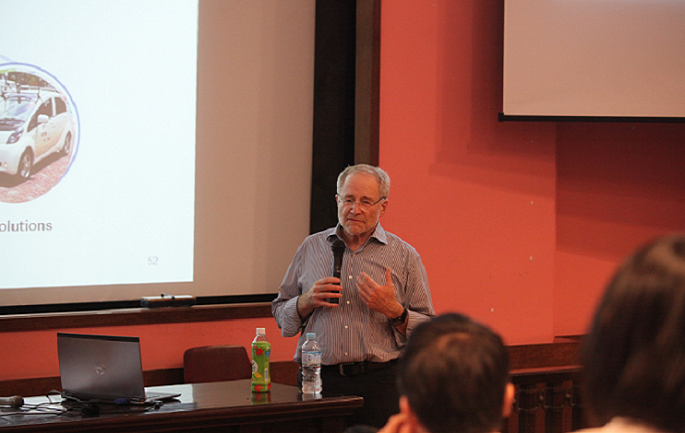
|
|---|
#06: "Modeling for capturing the diversity and changes in knowledge information society"(September 25-27, 2015)
|
In recent years, the Information and Communication Technology (ICT) and transport technology have been revolutionarily developed. ICT is expected to influence on the way of communication and travel behavior of users, so it is important to understand these changes and re-evaluate transportation and regional systems in this age. In this seminar, we invited Prof. Fujita, who is a specialist in economic field and currently doing research on diversity and creativity in Brain Power Society. In addition, three young speakers had presentations related to spatial or behavioral modeling. Mr. Fukuda talked about firm’s dynamic relocation process in Japan, Mr. Varghese focused on activity opportunities and changing travel patterns in using ICT information, and Mr. Oyama proposed a pedestrian scheduling model with GPS data. [Detail Report] |
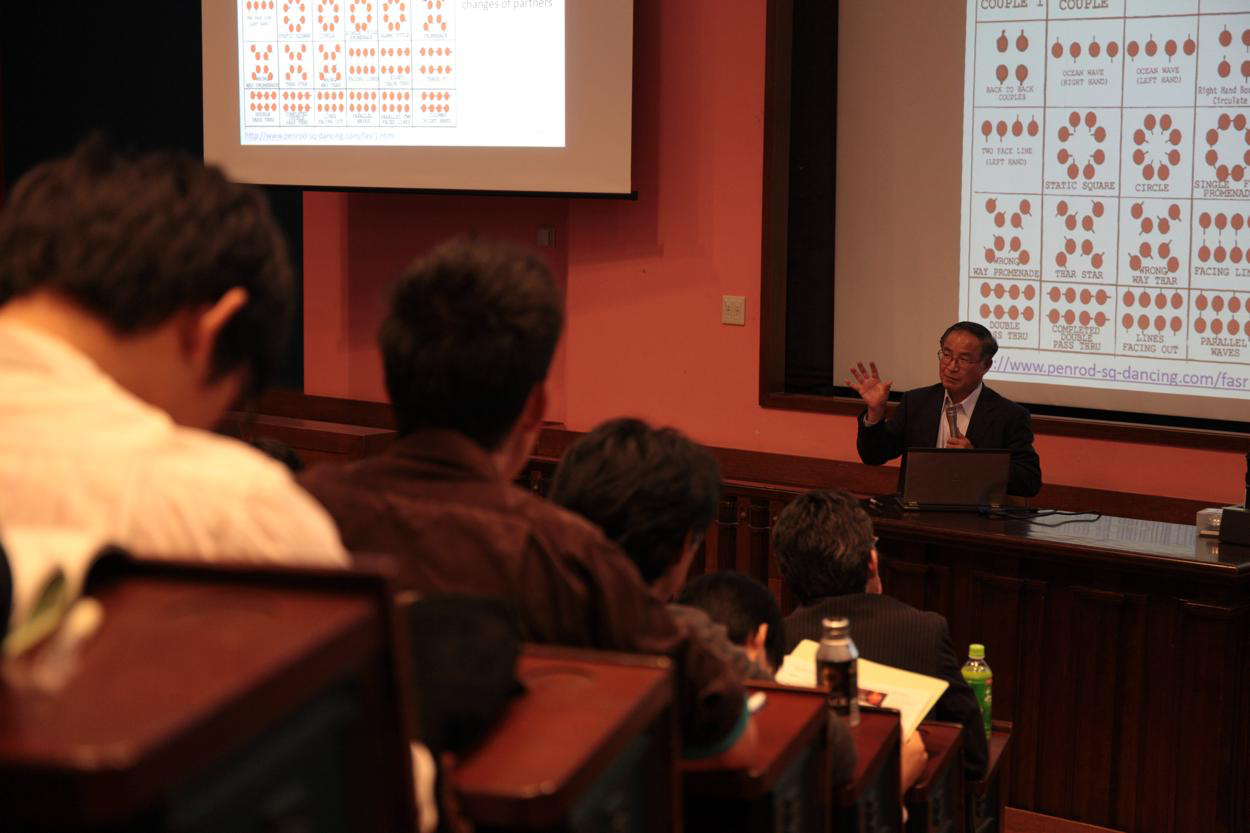
|
|---|
#05: "Modeling for evaluation of new urban transit and recent innovation in data-service technologies"(August 11, 2015)
|
The 5th International BinN research seminar, "Modeling for evaluation of new urban transit and recent innovation in data-service technologies" was took placed on Aug 11th, 2015. In this seminar, we mainly discussed the modeling for public transportation considering recent innovation in data-service technologies. As keynote speakers, we invited Dr. Oded Cats from TU Delft and Dr.Jan-Dirk Schmöcker from Kyoto University. Dr. Cats is currently doing research on agent-based dynamic public transit modeling. And the keynote lectures focused on developed dynamic model and its application to real network. In addition, we discussed new approaches to new urban mobility modeling considering recent innovation of technologies. [Detail Report] |
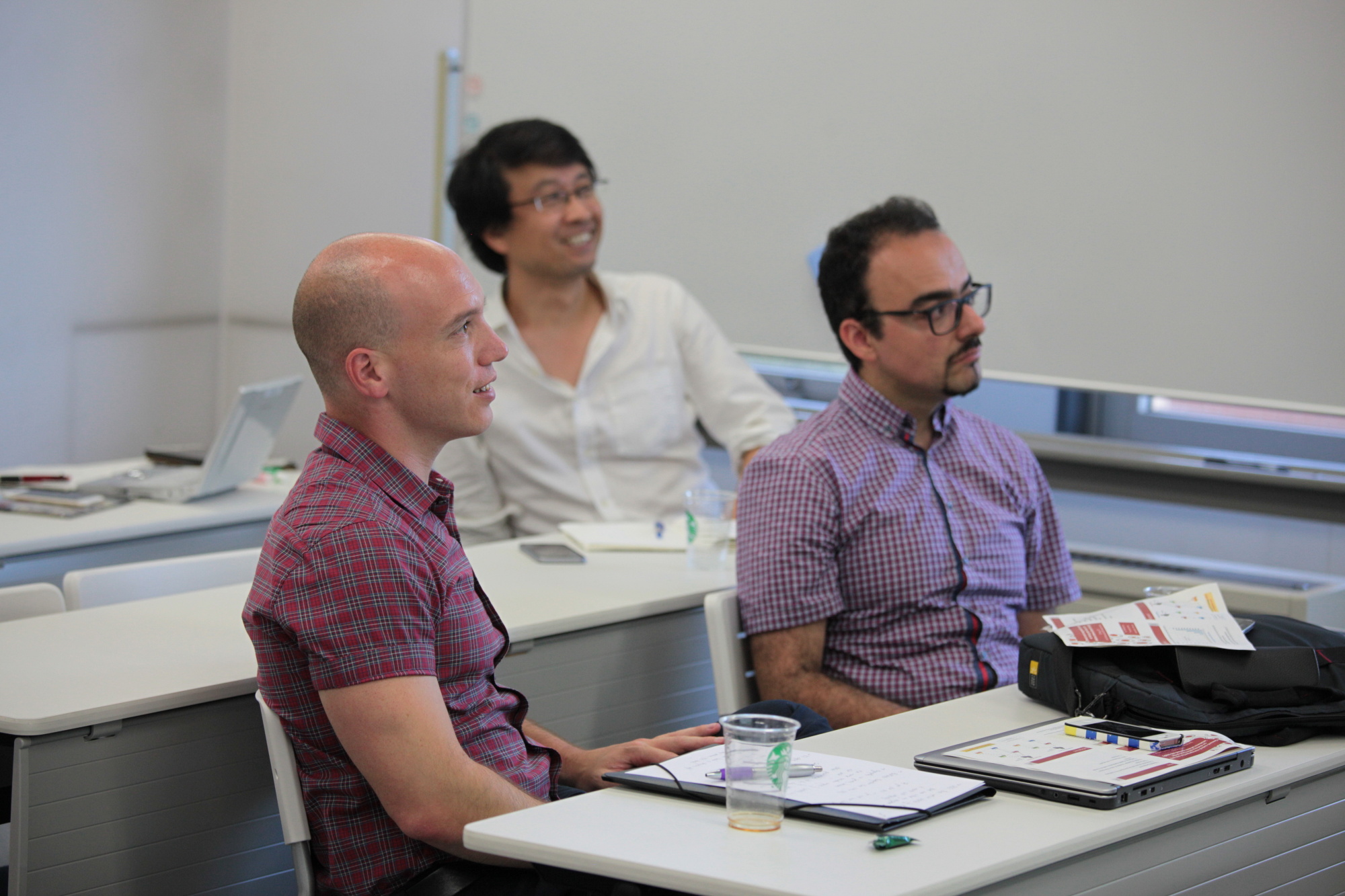
|
|---|
#04: "Dynamic modeling based on bounded rationality to understand diversifying travel behavior" (June 13, 2015)
|
Although much progress has been made over the years, the basis of current transport models is still the rational-agent model. This traditional view is regarded to lead to numerous biases in the description of human behavior. In this seminar, new approaches to travel behavior modeling based on bounded rationality are discussed, particularly focusing on how to accurately represent the decision making context and process. In addition, this seminar aims at discussing about methods for integrating new data and technologies into models. In this seminar, as keynote speakers, we will invite Dr. Theo Arentze from Eindhoven University of Technology and Prof. Morikawa from Nagoya University. Dr. Arentze is currently doing research on dynamic activity-based modeling involving human cognition and learning. The keynote lectures will focus on bounded rationality in individual decision making, and its implications for policy making. In addition, two invited researchers will discuss new approaches to disaggregate behavioral modeling. [Detail Report] |
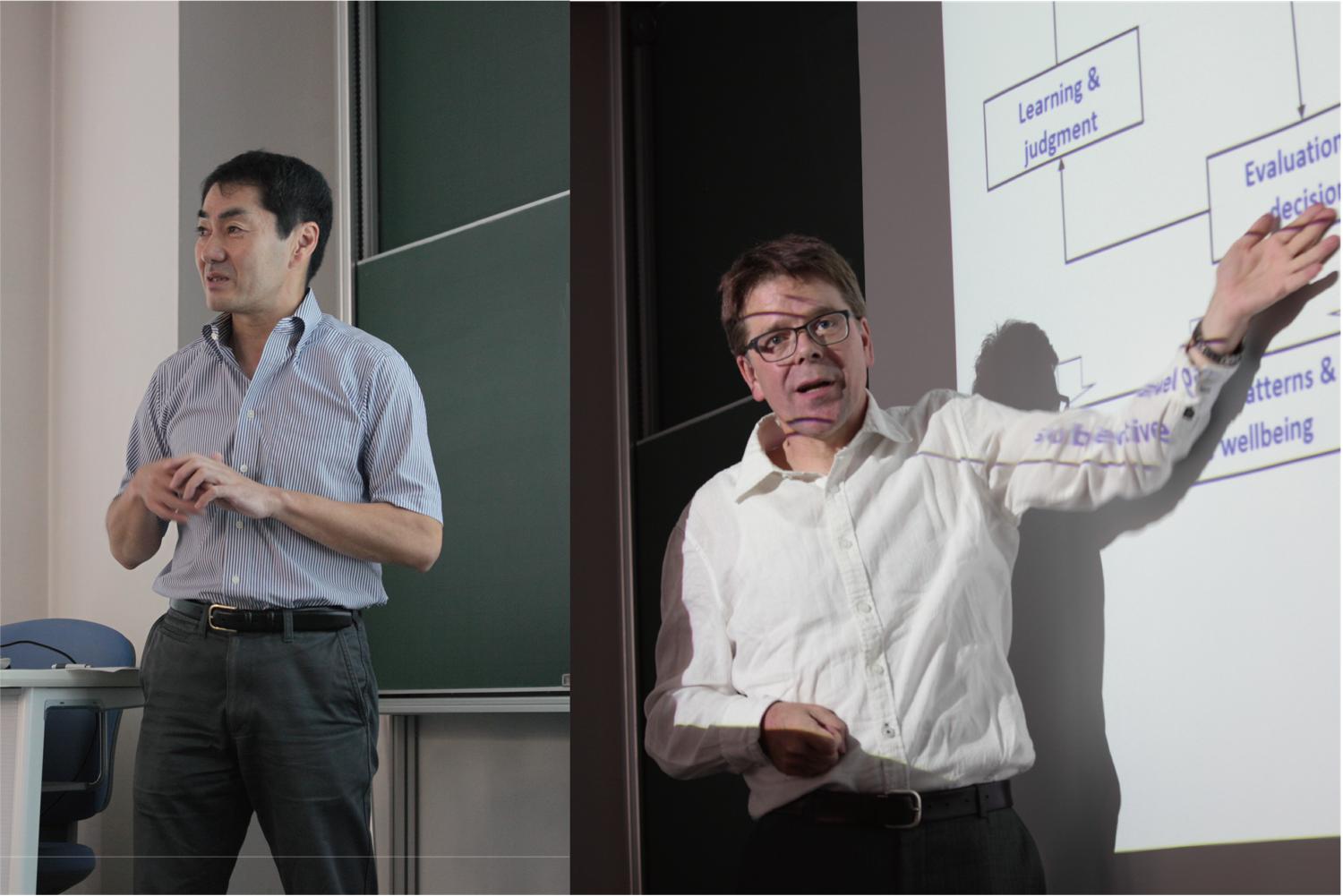
|
|---|
#03: "Network configuration and multi-scale behavior analysis"(March 4, 2015)
|
The optimal spatial scale of analysis of travel behavior differs given the target behavior of interest. As a result, modelling travel behavior in micro, meso and macro scale is necessary to adequately analyze and evaluate transportation networks. In this seminar, we invited Dr. Richard Connors from the Institute for Transport Studies (University of Leeds), and discussed about transport network science. How does the topological configuration of a transport network impact upon its performance? Answering this question is difficult because the space of all possible transport networks is large (of high dimension). Moreover, each network in this space could have flows arising from a high dimensional space of all possible demand matrices. Dr. Connors adopted an approach from Network Science and generated ensembles of synthetic road-like networks in order to systematically test performance as a function of topology. He set out a methodology and highlight the research questions that need to be considered within this process of generating synthetics networks, grouping them into ensembles and analysing their performance. [Detail Report] |
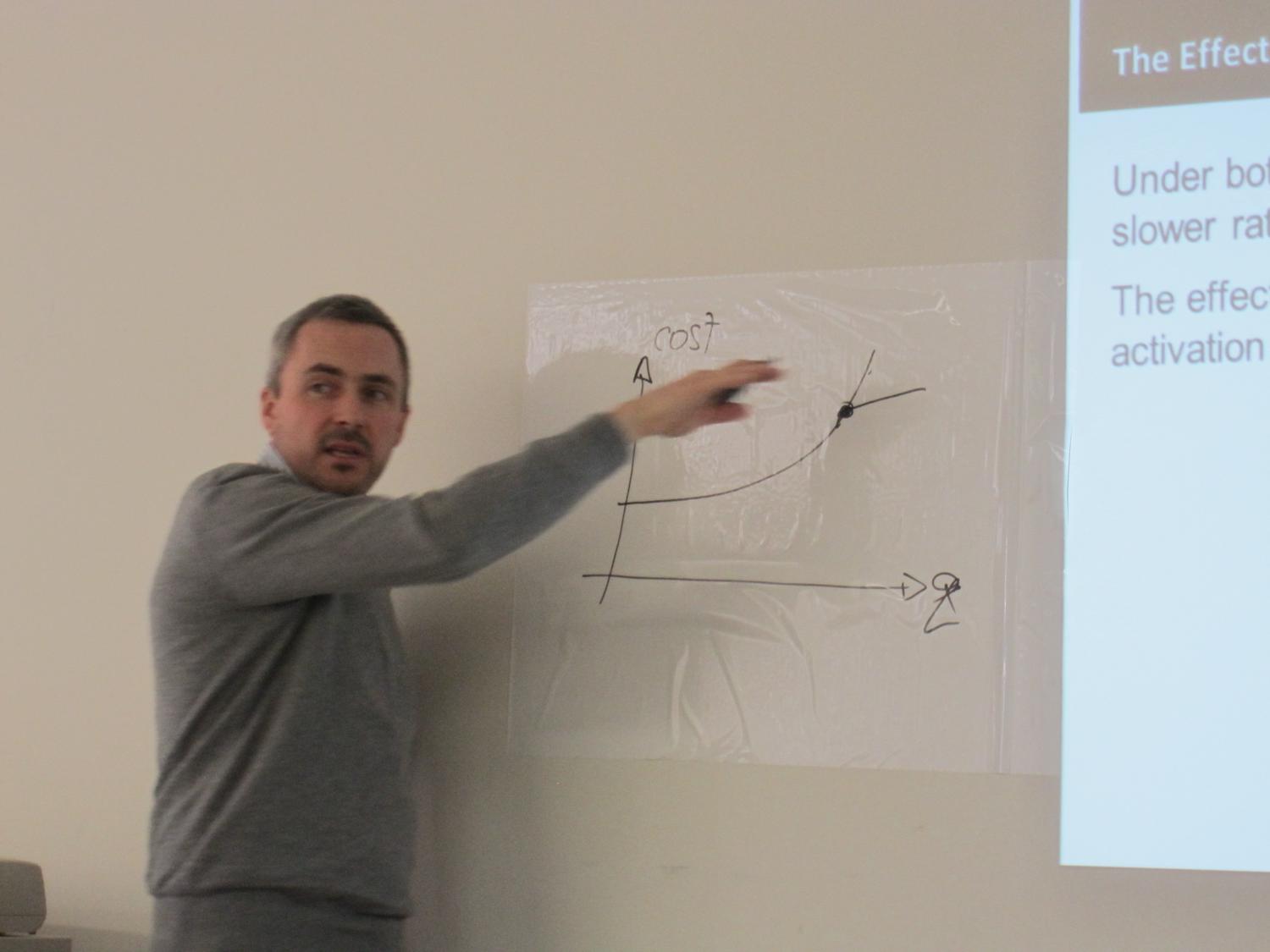
|
|---|
#02: "Advanced activity model for capturing dynamic changes"(September 27-28, 2014)
|
In this decade, activity-based models based on a succesive choices have become progressively popular. Activity-based models are able to illustrate and evaluate personal activities and their traffic environment. The models have been implemented for various policy applications. In this seminar, we invited Prof. Shlomo Bekhor, from the Israel Institute of Technology, who specializes on behavioral models, transportation planning and network optimization. For highly precise applications, activity-based models integrate with accurate observations and predictions of traffic states under dynamic situation. It is necessary to improve the speed and accuracy of their calculation. We discussed about the framework of the activity-based model in his research, the high accurate caluculation method and the correlation of alternatives in behavioral model through the keynote lecture from Prof. Shlomo. Young researchers made presentations about the traffic state prediction by the new vehicle observation, the built environment-travel behavior connection and the local intraction formation model. These predictions and models will contribute to the improvements of the activity evaluations. [Detail Report] |
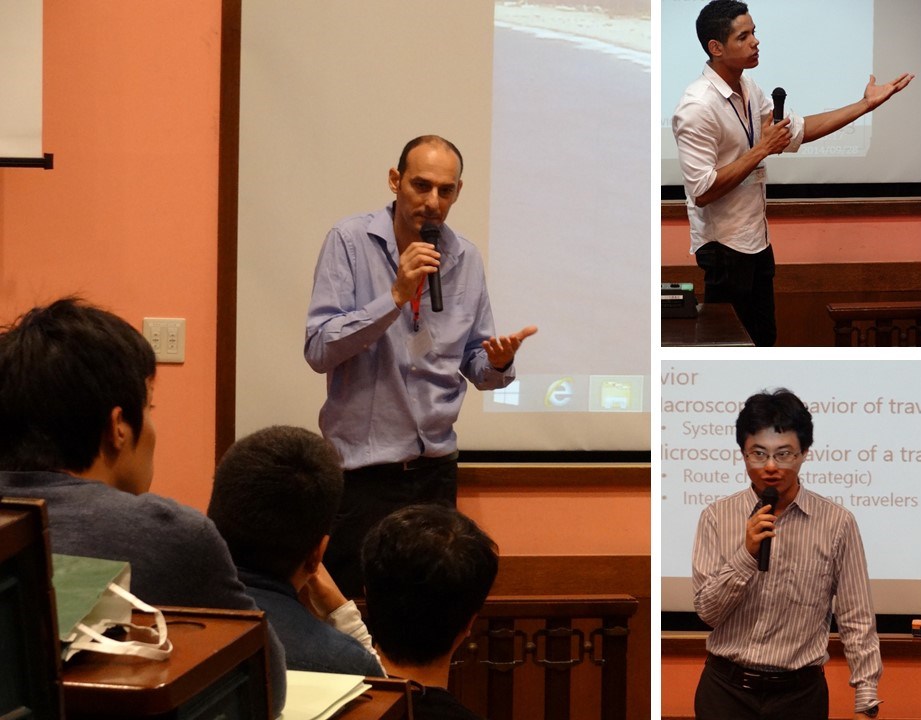
|
|---|
#01: "Dynamic Travel Behavior Modelling for Evacuation"(July 12, 2014)
|
Dynamic management and forecasting methods are necessary for optimal evacuation in disaster situations given the existence of serious constraints such as evacuation time and access to information. In this seminar, we invited Dr. Adam Pel, assistant professor at TU Delft, and discussed about dynamic travel behavior modelling for evacuation. Dr. Pel's lecture gave an overview about the research efforts at TU Delft focusing on improving route choice behavior and traffic management during evacuation situations. Our second speaker, Dr. Iryo discussed the issue of traffic evacuation directions using the Great East Japan Earthquake as a case study. The presentation challenged the assumption of a unique destination used in Dynamic Traffic Assignment for evacuation analysis. [Detail Report] |
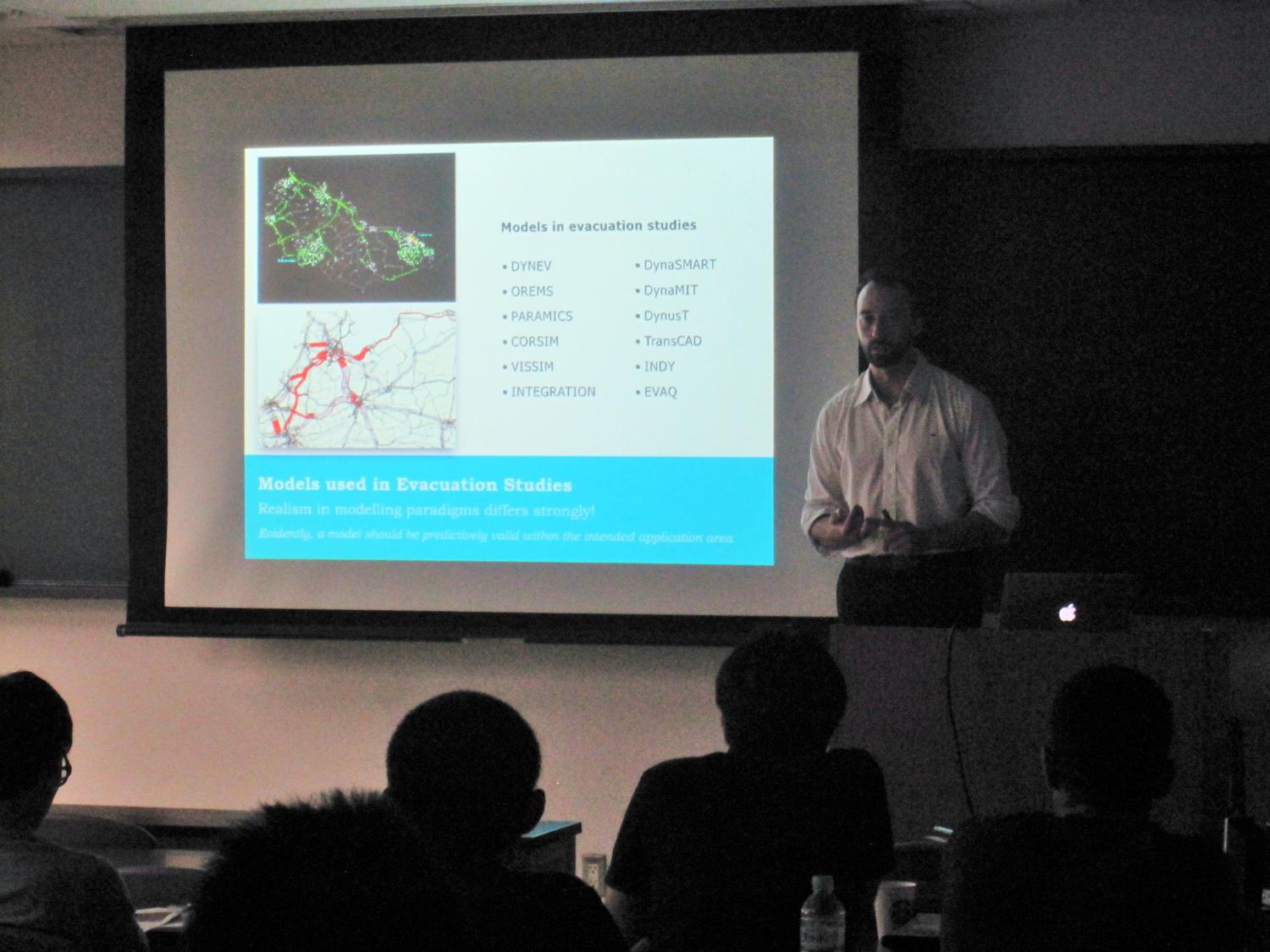
|
|---|
Further Information
The International BinN seminar will be held two or three times per year. In these seminars, invited researchers and participants discuss about behavior in networks both from a theoretical and a practical perspective.
This seminar is supported by Grant-in-Aid for Scientific Research.
・Grant-in-Aid for Scientific Research S (Research Project Number:26220906, Principle Investigator: Masao Kuwahara)
"Dynamic risk management of transportation networks using mobile system monitoring"
・Grant-in-Aid for Scientific Research A (Research Project Number:25249069, Principle Investigator: Eiji Hato)
"Data fusion theory and application for behavior modelling in traffic networks"
For more information about the international BinN seminar please contact Prof. Hato (hato {at}bin.t.u-tokyo.ac.jp).